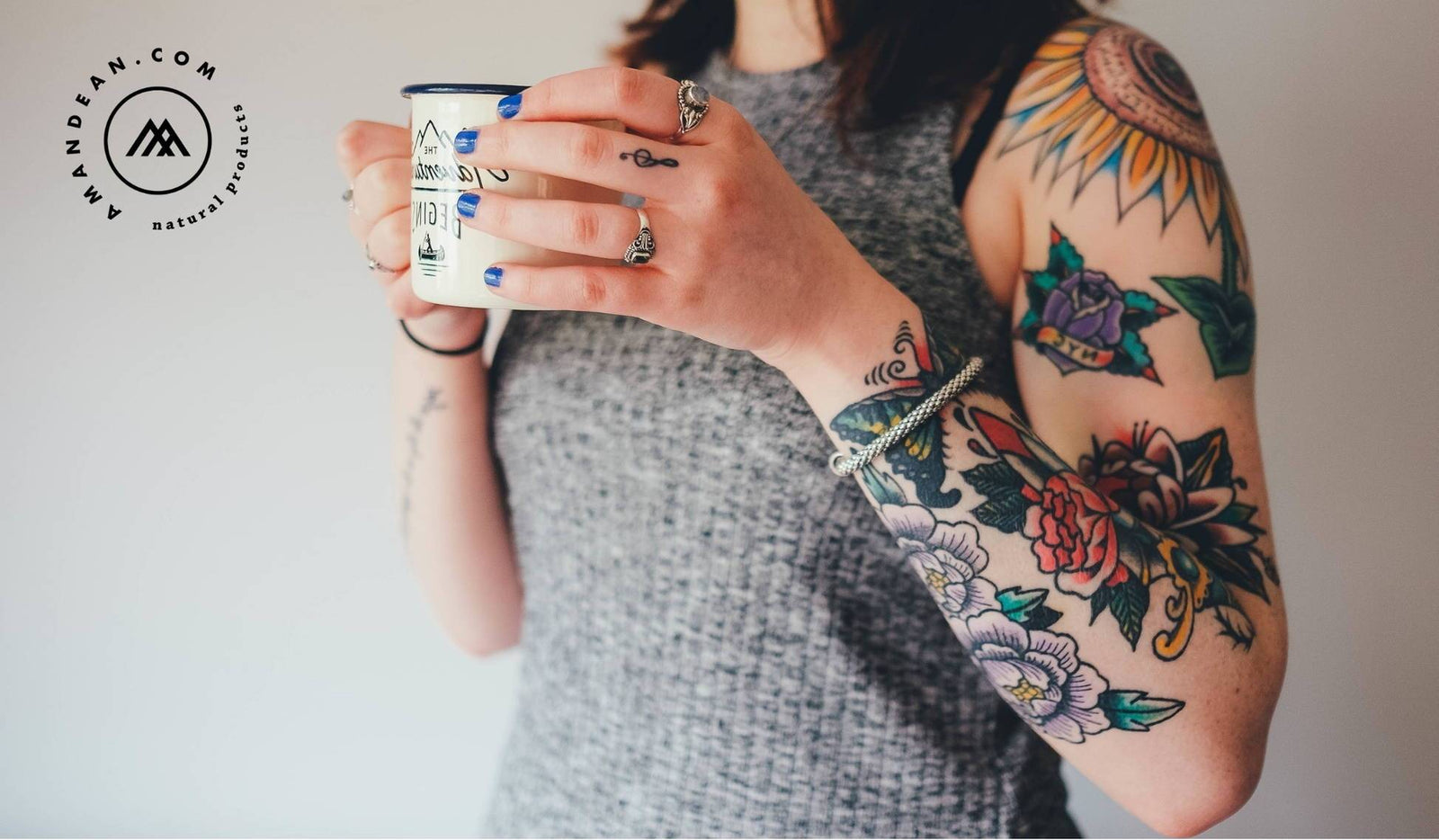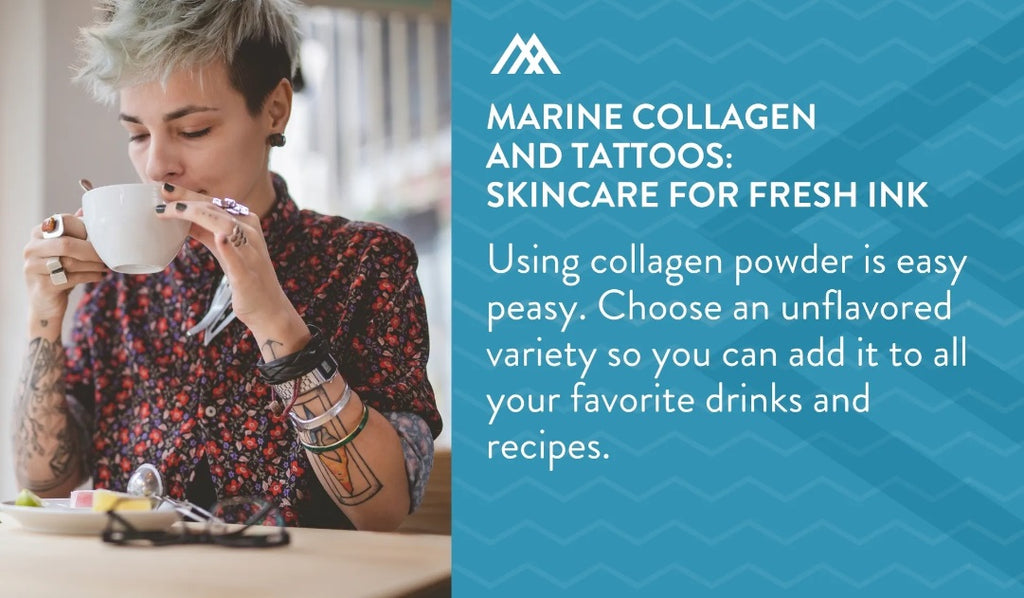Your Cart is Empty

January 19, 2021 4 min read
It's tragic to think of your newly tattooed skin scabbing over, losing its vibrancy, and even causing a skin infection, but it's reality. Tattooing is no walk in the park! Finding the best tattoo aftercare routine can be tricky. Your tattoo artist is likely to give you their top tips for protecting and healing your fresh ink. A dermatologist might tell you otherwise.
So who should you trust? You may be surprised to know that it actually depends on where you live! For our stateside readers, different states have different tattoo aftercare regulations. Thirty states require written or verbal instructions on aftercare - the others do not. No matter which state you live in, your tattoo care instructions are likely to follow these guidelines:


In addition to the six skincare tips above, one way to heal your skin from the inside out is by restoring its natural collagen levels. Collagen is an extremely popular ingredient in skincare products and is used as a protein source for pre and post-workout nutrition. Its popularity in the skincare industry has everything to do with its prominence in the human body.
Collagen is the most abundant protein in the body. Its job is to keep all the connective tissue in the body healthy, flexible, and sturdy and that includes the skin. Our natural collagen levels decline with age which can cause wrinkled, dry skin. Not only does this collagen get "spent", but it can also be damaged by free radicals and tattoos themselves.

Tattoos are literally just injuries to the skin. Studies have found that tattoos, both from the initial penetration and the tattoo ink, can damage fibroblasts in the skin thus decreasing our body's ability to produce collagen. This makes tattoos inherently difficult to heal! One way to overcome this (and your fomo of showing off your tattoo) is with collagen supplements. Supplementation of highly bioavailable collagen powder has been shown to improve the skin's appearance and overall health.
It's beneficial for all skin types and also has benefits, not just for your skin's health, but for your entire body from your gut, to your hair, and lean muscle. Marine collagen specifically contains both types I and III collagen which are found in high concentrations in the skin, hair, and nails. Not only that but marine collagen has been hydrolyzed down to a smaller molecular weight to make it easier for your body to absorb and deploy throughout the body. AKA - more bang for your buck!

Moreover, using collagen powder is easy peasy. Choose an unflavored variety so you can add it to all your favorite drinks and recipes. Try a scoop in your morning coffee, tea, or even add it to yogurt or scrambled eggs. It is soluble in hot and cold liquids and contains zero carbs.
Whether you're still daydreaming of getting your next piece done or are looking for ways to boost the longevity and health of your tattoos don't stop with your typical aftercare products - try a collagen supplement to start healing on a cellular level.
Moisturizing your tattooed area is crucial, even after you think you're in the "clear".
Rather than Vaseline, try applying a paraben and fragrance-free moisturizer or body lotion to the affected area.
Collagen is the most abundant protein in the body. Its job is to keep all the connective tissue in the body healthy, flexible, and sturdy and that includes the skin.
Studies have found that tattoos, both from the initial penetration and the tattoo ink, can damage fibroblasts in the skin thus decreasing our body's ability to produce collagen.
Choose an unflavored collagen variety so you can add it to all your favorite drinks and recipes.
Take our quiz and find which supplements your body is craving.


April 08, 2025 7 min read
Discover the powerful trio for graceful aging—Vitamin D3+K2 and Omega-3 fatty acids. This dynamic combination supports bone strength, heart health, immune function, and reduces inflammation, helping you maintain vitality and well-being as you age.

March 20, 2025 8 min read
Discover the benefits of creatine for women with Amandean’s Creatine HCI. Improve strength, energy, recovery, and cognitive function with this high-absorption formula. Its advanced HCl form ensures easy digestion and no bloating, providing all the benefits without the drawbacks. Elevate your fitness journey and overall wellness with a supplement designed for women’s unique needs.

March 03, 2025 7 min read
Discover how Bryan Johnson, a tech entrepreneur turned biohacker, uses cutting-edge science and personalized genetic testing to revolutionize health and longevity. Learn how biohacking, from diet to mental health practices, can help you live longer and healthier, with practical strategies to optimize your well-being. Find out more about genetic testing, and ways to implement results into your wellness routine.